
Toronto Police raid 43 medical marijuana dispensaries
By Fernando Arce (with files from Tom Keefer)
TORONTO – On May 26th, Toronto police carried out a major raid on medical marijuana dispensaries in the city. According to Chief Mark Saunders, who was holding a press conference inside the building, the raids – dubbed “Project Claudia” – hit 43 unlicensed marijuana dispensaries and laid criminal charges on 90 owners and employees. They also “confiscated more than 270 kilograms of pot…(and) $160,000 in cash, 127 kilograms of oils and spreads, and 142 kilograms of pot-infused cookies,” reported the Toronto Star.
In response, more than 200 pot activists and smokers gathered outside Toronto Police Headquarters, on 40 College St., on May 27, to denounce the cops’ raids on marijuana dispensaries the day before.
With so many dispensaries closed, activists argued, thousands of medicinal users would be forced back into the black market.
“Last night, I got home to a number of messages (from patients), and they had no medication and their dispensaries were closed,” said Tracy Curley, a long-time medical marijuana patients’ advocate and legalization activist. “And my only option was to tell them to go the streets…So shame on the police and the city councillors who support this action.”
Al Wards, 38, a medical user since 2004 due to a workplace injury in which he lost his leg, came all the way down from Sault Ste. Marie to show his support for both users and the dispensaries that cater to them. While he can still get his medicine from a friend who is a “licensed grower,” he said he understood how necessary dispensaries were.
“If it wasn’t for cannabis I’d be stuck in a chair,” he said. “Dispensaries are a livelihood…Without (them) a lot of patients don’t have access to the medical marijuana that they need. And it’s unbelievable what the police did…in Toronto.”
The protest, which began at around 10 AM, went on for more than four hours as the press conference took place inside. As time went on, more people either joined demonstrators or blew their honks in solidarity. Police remained calm though vigilant throughout the entire thing, as hoards of people blew clouds of marijuana smoke all around them.
“Every Canadian should feel betrayed,” said Marc Emery, renown as Canada’s “Prince of Pot,” to the wildly-cheering multicultural smokers. “(We) voted for legalization. Instead, (we’re) getting prohibition!”
Emery therefore called on people to “be prepared to go to jail” if necessary, lest “we all lose our plant.”
“We will lose our position as the people who made legalization happen, and we will just be people who are handing money over to big corporations who have stolen our industry, our movement, and our plant,” he said.
Curley agreed. She encouraged all those people who “believe in the fight” to continue opening up dispensaries and packing them full of marijuana in open defiance, despite the fact they may very well be arrested and charged.
“This is what we need the most. We need people that are willing to do it. That believe in it enough. Healthy people that are willing to fight for patients. We need them more than anytime now.”
She continued: “So it means we’re faced with more court challenges, more people having to face arrests and to actually stand in the face of the government and commit acts of civil disobedience by continuing to open everyday, to fight for our peace in this industry.”
The crowd, full of young and old and of all ethnic backgrounds, was in wild support, chanting things like “no prison for pot,” “repeal prohibition,” and “stop government greed.”
In fact, activists took that last one to heart, as they raised the concern that the federal government was trying to monopolize the pot-producing industry by closing down dispensaries ran by small business-owners.
“Once these are closed, the corporations will take their place in the same neighbourhoods,” said Curley.
Impact of the raids in Indian Country
The raids have made an impact outside of Toronto as well, as dispensaries have been cropping up across Canada in the context of legal ambiguity concerning marijuana legalization, and an increasing recognition of the health benefits of medical marijuana.
Tim Barnhart, the owner of Legacy 420, a medicinal marijuana dispensary in Tyendinaga Mohawk Territory, (near Belleville, Ontario) was unconcerned about the impact of the raids in Toronto, seeing police repression against medical marijuana as a lost cause. Barnhart believes that it is the corporate “factory model” of marijuana production that is has been putting pressure on John Tory to shut down the Toronto dispensaries.
Barnhart says he has good relations with the local police in Tyendinaga, and has no fears of similar such raids on the Mohawk territory. “I’ve been clear and upfront with them from the start about what we’re doing” said Barnhart, noting that the local police have even commented on his Facebook page. “It’s been really good. I’ve been emailing them back and forth on a number of issues, and we’re communicating well.”
Barnhart is working to develop a unique brand of medical marijuana dispensaries on indigenous reserves, and is convinced that the dispensary model will continue. “The courts have already said we can’t put it drug stores. That means that dispensaries are the best way to get this medicine to people.” Barnhart adds “they are much better than the alternative which is going to drug dealers who don’t care about anything than making a quick buck.”
Clyde King, a Mohawk man from Six Nations who is in the process of establishing his own medical marijuana dispensary, says that the raids leave him and his partner “undeterred.” King notes that recent events “haven’t changed my mind about the need to open a medical cannabis dispensary on Six Nations.” King adds “as for who they raided and who they didn’t raid, I believe the raids were motivated by the Licensed Producers. The raids are about control and taxes under the guise of health and safety. Legalization in Canada is about monopoly control by those in cahoots with the corporation of Canada to squeeze money from sick patients in need.”
King is motivated by his desire “to offer clean affordable medicine to those that need it” and is planning to go to the Haudenosaunee Confederacy Chiefs Council, the traditional governance system at Six Nations “to push for them to draft our own laws as traditional knowledge and historic use of cannabis.”






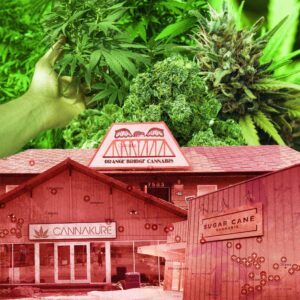
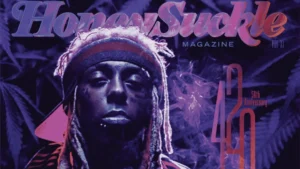


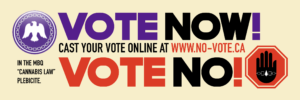

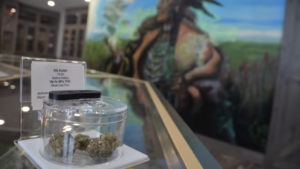
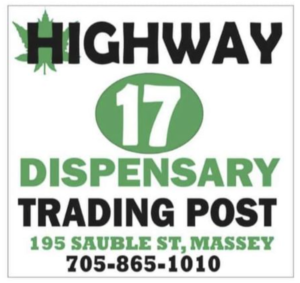

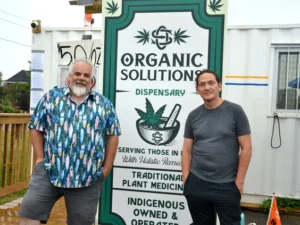
Be First to Comment